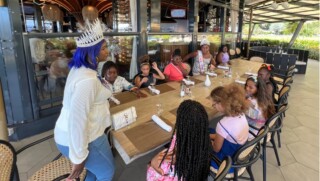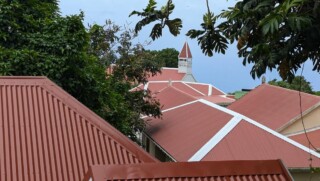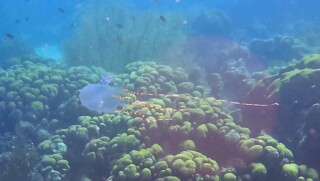Three New Species of Birds Identified on Bonaire

Kralendijk – 2019 proved to be an exciting year for birders on Bonaire, as three new species have been identified. The Brown-chested martin, White-collared swift and Ringed kingfisher were added to Bonaire’s increasing index of local birds. Documenting and understanding local bird populations is crucial in developing management and protection plans for Bonaire’s natural resources.
The number of bird species recorded on Bonaire is growing each year. In 2016, three new species were identified, the Lesser black-backed gull, Pied water-tyrant and Dickcissel. Additionally, six new species were identified in 2017, Oilbird, Greater ani, Smooth-billed ani, Prairie warbler, Black vulture and Cory’s shearwater. In 2018, an unexpected Crowned-slaty flycatcher from South America was the only new bird identified. The first record for each of these birds were described in the Dutch Caribbean Nature Alliance’s free newsletter named BioNews issues 11-2017 and 19-2018 (https://www.dcnanature.org/bionews-archive/).
This article by Peter Paul Schets shortly details the three new species identified in 2019. The addition of these birds brings the total number of bird species recorded on Bonaire to 235.
Apart from these three new birds, 2019 proved to be an excellent year for rare and uncommon bird species on each of the ABC islands. Unusual bird sightings for Bonaire included several Striated herons, one female Ring-necked duck, two Hudsonian godwits and some Upland sandpipers, several Black skimmers, at least one Eastern kingbird, two Scarlet and one Summer tanager, at least four Indigo buntings, one male Common yellowthroat, a Connecticut and a Black-and-white warbler and two Rose-breasted grossbeaks.
Have you observed Birds?
Please report your sighting on the website Bonaire.Observation.org or download the free apps. This free website and free apps can be used not only by biologists but by all citizens to report any animals and plants and is available in more than 40 languages. It is now also being translated to Papiaments. The species reports by local communities are very valuable for the nature conservation organization to learn and protect the species on our islands. For more information contact research@dcnanature.org.












